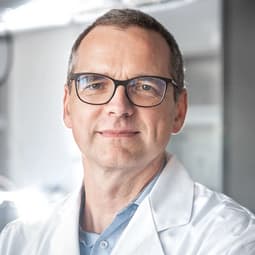
Torsten C. Schmidt
Professor, Instrumental Analytical Chemistry and Centre for Water and Environmental Research (ZWU), University of Duisburg-Essen, Germany
False

Professor, Instrumental Analytical Chemistry and Centre for Water and Environmental Research (ZWU), University of Duisburg-Essen, Germany
Main research aims? Our research mainly aims to provide a more comprehensive understanding of the occurrence, effects, fate and abatement of organic contaminants in aquatic systems.
Most exciting emerging technology? There is a lot of exciting work trying to uncover more of the exposome, like the total human exposure and associated diseases in a broader One Health concept. This perfectly aligns with strengthening the links between environmental analysis, hygiene and epidemiology in using wastewater as a source of health-related information in the population. While wastewater-based surveillance that focuses on the use of illicit drugs has already been well established on a European and international level, we are only now beginning to realize its huge potential. That area, of course, received a boost during the pandemic for SARS-CoV-2 analysis using quantitative polymerase chain reaction assays. We need to maintain that momentum to revolutionize future public health surveillance by pathogen and biomarker analysis in wastewater.
How would you spend a $1 billion research grant? To be honest, I never thought about such a huge grant. But if I had such a substantial amount of money available specifically to support my research, I would use the existing base of our Centre for Water and Environmental Research (ZWU) at the University of Duisburg-Essen (UDE) and establish here the most advanced freshwater research facility in the world. This would include a strong outreach component, as the importance of freshwater systems for environmental and human well-being is not yet sufficiently recognised by the public. With our recent successes in securing funding, albeit on a much smaller scale, we are already taking small steps towards reaching that goal.
Receive the latest pathologist news, personalities, education, and career development – weekly to your inbox.

False
False
False